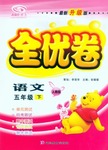题目内容
--- Some Chinese students find it difficult to understand native speakers when in London.
--- Exactly, they’ve learned a lot about grammar and known many words.
A. if only B. now that C. as if D. even if
D
解析:
略

练习册系列答案
 ABC考王全优卷系列答案
ABC考王全优卷系列答案
相关题目